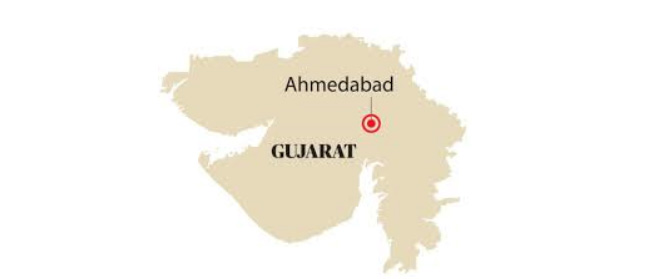Bhubaneswar: The Odisha Madmukti Abhiyan (Odisha Anti-Liquor Campaign) has intensified its call for the State Government to adopt excise policies akin to those implemented in Gujarat and Bihar, aiming for a complete prohibition on intoxicants. This proposal comes as the newly formed BJP Government in Odisha completes its first year, facing mounting pressure to address the growing issue of drug addiction and its societal impact.
The campaign’s advisors highlight the success of prohibition in Gujarat and Bihar, both states governed by NDA alliances, as a model for Odisha. They specifically point to the popularity gained by leaders like Prime Minister Narendra Modi, who strictly enforced prohibition during his tenure as Gujarat’s Chief Minister, and Bihar Chief Minister Nitish Kumar, whose prohibition policy has resonated strongly with women voters.
“The Odisha Government is currently using the photo of Prime Minister Narendra Modi alongside Chief Minister Mohan Charan Majhi in all its advertisement materials,” stated Prahlad Kumar Singh, a prominent advisor to the Odisha Madmukti Abhiyan.
“While Shri Modi, as Chief Minister, gave full support to the anti-liquor campaign in Gujarat and implemented it strictly, the BJP Government in Odisha should also adopt this system for complete prohibition of drugs”, urged Shri Singh.
Gujarat Prohibition Model:
Gujarat, a state with a long-standing history of prohibition under the Bombay Prohibition Act of 1949, remains one of the few Indian states where the sale and consumption of alcoholic liquor are largely prohibited.
The state’s policy has historically been stringent, with permits primarily issued to foreign tourists, Non-Resident Indians (NRIs), and individuals with medical needs.
Obtaining a liquor permit for visitors requires a series of documents, including transportation receipts to prove arrival, government IDs, a passport-size picture, and local address proof.
These permits are typically valid for seven days and allow for the purchase of a limited quantity of alcohol from licensed vendors.
However, a significant policy shift occurred recently with the introduction of a controlled liquor policy in GIFT City, Gandhinagar, in December 2023.
This landmark development allows for the legal consumption of alcohol within designated “wine and dine” zones by obtaining a Liquor Access Permit (LAP) for employees and Temporary Permits for visitors accompanied by LAP holders.
This zone-specific relaxation marks a departure from the traditional blanket ban, aiming to facilitate business in the financial hub while largely maintaining the state’s prohibition framework elsewhere. Despite this, carryout or retail sale of alcohol remains strictly prohibited outside licensed premises, and violations are met with strict penalties under the Gujarat Prohibition Act, 1949.
Bihar’s Path to Prohibition
Bihar implemented a complete prohibition on the sale, purchase, distribution, manufacturing, storage, and consumption of liquor in 2016 through the Bihar Prohibition and Excise Act.
This move, spearheaded by Chief Minister Nitish Kumar, was largely seen as a response to widespread demands, particularly from women’s self-help groups, who reported significant negative impacts of alcohol consumption on families and society.
While the policy has been lauded for its social intent and its impact on women’s empowerment, it has also faced challenges, including issues of illicit liquor trade and related fatalities. Amendments to the Act in 2018 aimed to address some of the harsher penalties and presumptions of guilt, making certain offenses bailable and reducing fines and prison terms.
Odisha Context: Rising Revenue and Mounting Concerns
The Odisha Madamukti Abhiyan’s concerns are amplified by the state’s excise revenue trends. Despite campaigns like the “Drug-Free India campaign” funded by the central government, Odisha’s excise revenue is projected to increase significantly, by about 35 percent in 2023-24 as per the budget estimates for 2025-26. This upward trajectory in revenue from intoxicants, coupled with the observed rise in the distribution of liquor, ganja, and brown sugar, raises alarm bells for the anti-drug campaigners.
Anti Liquor Campaign Strategist Prahlad Kumar Singh lamented that the increasing spread of drug addiction is misleading youth and students, leading to a rise in crimes, diseases, and accidents. He also highlighted that the efficacy of various social security, development, and poverty alleviation schemes is being undermined by the pervasive issue of drug addiction.
The Odisha Government, under the new BJP leadership, is reportedly in the process of formulating a new excise policy, which is expected to be announced by June 20, 2025. This policy will be a three-year framework, a departure from the previous annual policies.
Reportedly, State Excise Team is currently studying excise policies of various states, including Andhra Pradesh, to adopt “best practices.” The state has also launched a large-scale anti-drug addiction campaign from May 31 to June 26, involving students, communities, youth, and women.
The Odisha Madmukti Abhiyan urges the State Government to leverage the political synergy with the central leadership and emulate the Gujarat model of strict prohibition, amending and rigorously implementing the existing Odisha Anti-Liquor Campaign, which was originally enacted during the Chief Ministership of Nabakrishna Chowdhury. The demand underscores a critical debate on public health, social welfare, and state revenue in Odisha.


